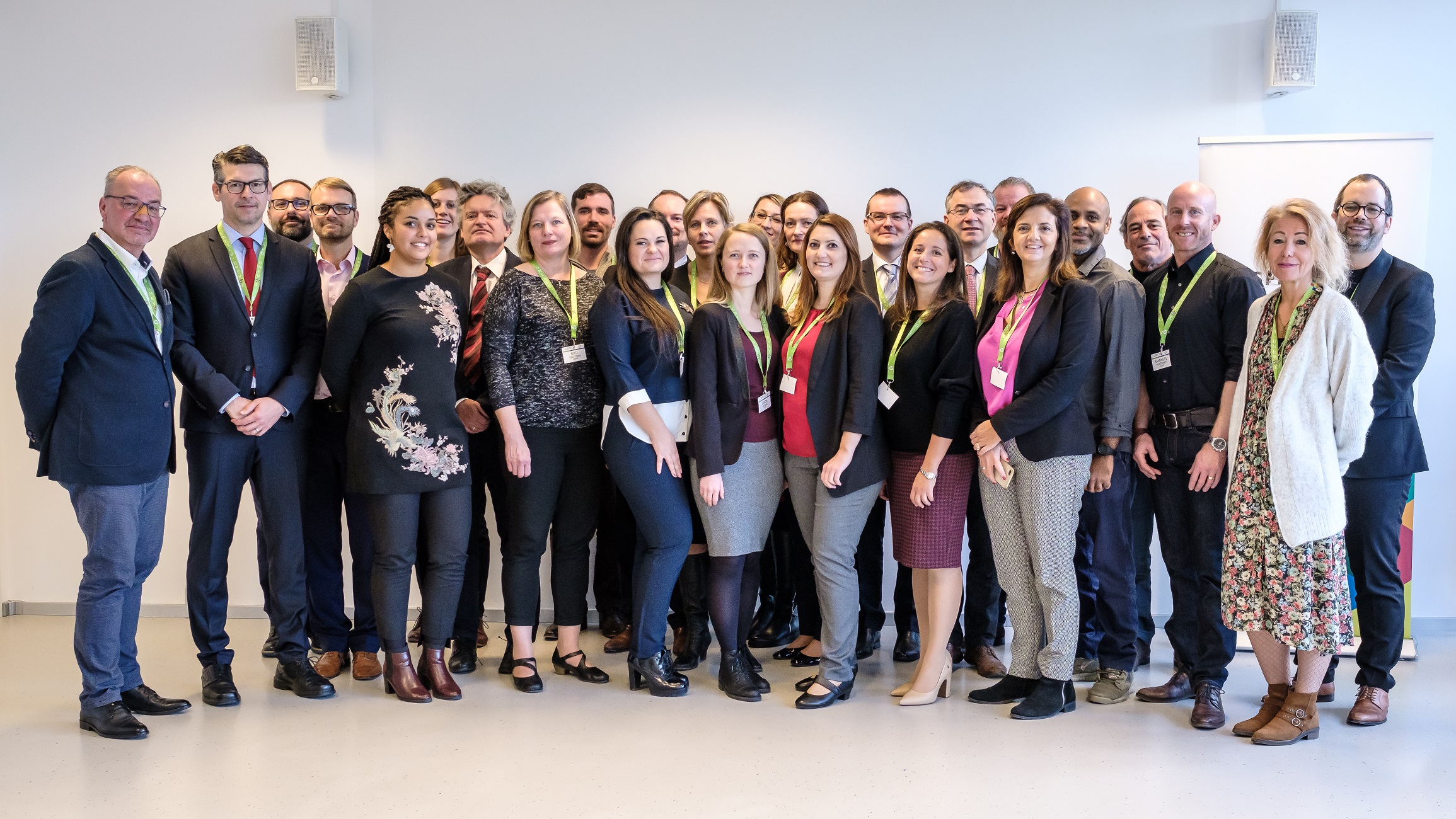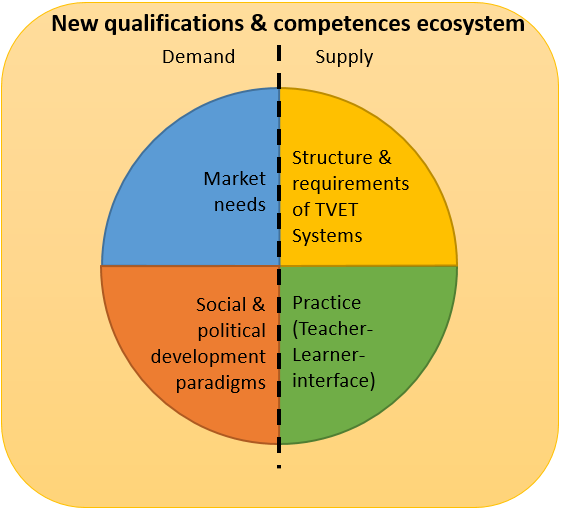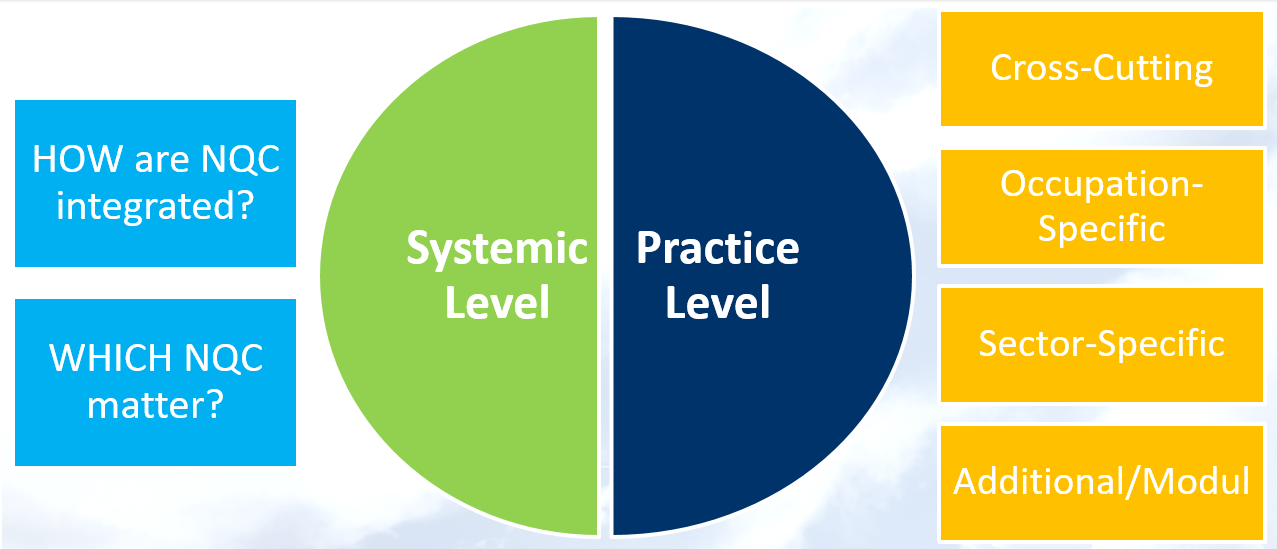About BILT: Our approach | Themes | Who we are
Get involved: News and events | BILT community | Expert group | Self-Reflection Tool
Knowledge base: Innovative and promising practices | Atlas of emerging trends | BILT library | TVETipedia

Bringing future-oriented qualifications and competencies into practice, which serve the market needs, appeal to youth and fit into promising career paths is not a straightforward task:


The presented initiatives facilitated consideration of what New Qualifications and Competencies are emerging or needed in VET for the future. Reforms saw entrepreneurial and soft skills embedded within programs as well as new modules on greening and digitalization created for adoption and use. One conclusion made was that it is important to maintain a clear separation between systemic interventions, as compared to interventions on the practical level such as teaching methods or content, since these concern different levels of TVET actors.
The role of teachers was also an important element under discussion, with changes in content requiring teachers to stay informed and abreast of technology, but also move towards collaborative program and content design and in some cases becoming more of a mentor or coach in the learning process. Flexibility within the national framework to reflect local or regional needs of the labor market in curricula or training regulations was seen as an indicator for success, as institutions able to directly address gaps in national curricula provide a valuable service for training providers, the private sector and indirectly the communities.
The workshop on New Qualifications and Competencies in TVET was the fourth of five within the UNESCO-UNEVOC’s Bridging Innovation and Learning in TVET (BILT) project, which focus on the thematic areas of Greening, Digitalization/Industry 4.0, Entrepreneurship, Migration, and New Qualifications and Competencies. The BILT project aims to facilitate the exchange of experiences and peer learning across the European UNEVOC Network within these thematic work streams.
For more information about the workshop on New Qualifications and Competencies in TVET, please consult the workshop agenda and participants overview.
The BILT project is implemented by
with support of
and sponsored by